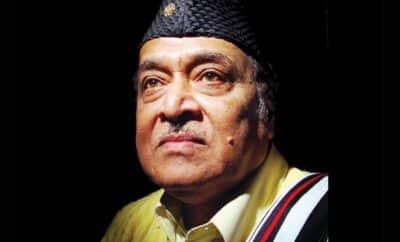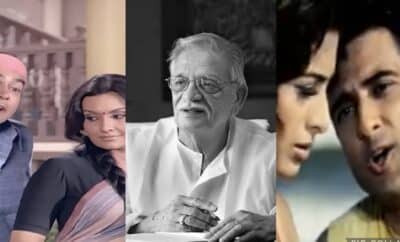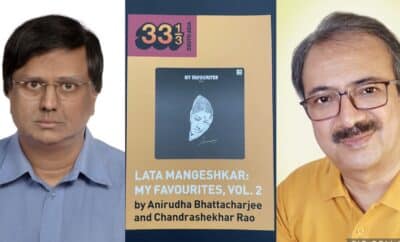Song Sketch
Purvaiya Leke Chali Meri Naiyya – Do Jasoos – Sailing with the Sails of Love
Sailing the ocean could mean a conquest for a seafarer like Columbus, but it not so for a fisherman. Sailing in a teeny-weeny boat day in day out successfully could certainly be no less than achieving a victory; but for him, it is rather like surrendering to and worshipping his Sea God with complete devotion. Isn’t it somewhat similar in case of love too? Once in love, you win the most precious thing in your life on one side, and on the other, you are ready to lose everything else for the love and devote your life to the lover. Just like a fisherman sets sail in the sea through the winds – sometimes favourable and sometimes unforgiving; one who is in love is all set to sail the sea of life with the lover through all ups and downs.
The song “Purvaiya leke chali meri naiyya” from Do Jasoos (1975) takes us on such a sail through the sea and through love.
The song starts with a beautiful visual of a few boats sailing gracefully though the sea and we hear a few lines sung by chorus in a typical folksy fisherman style on a catchy dholak rhythm –
Dariyacha raja, deva ho deva,
Tumhi ho mazhaa, deva ho deva,
Tere bharose chhod dee naiyya,
Naiyya ka ab to tu hi khivaiyya…
As they embark on their daily trip into the sea, the fishermen pray to their Sea God saying – “we have set our sail trusting in you. You are now the rower for our boats.”
While these lines are being sung in the background, we hear Lata Mangeshkar’s sharp and sweet aalaap, with the visual shifting to Bhavana Bhatt’s close up zooming out gradually and then back to the boats on the sea.
Bhavana Bhatt, dressed like a traditional fisherwoman, then starts singing in Lata Mangeshkar’s voice –
Purvaiyya leke chali meri naiyya
Jaane kahaan re? Jaane kahaan re?
She is clueless where the eastern winds are taking her boat. She has set upon the voyage of love, and she is ready to go wherever the winds and the current take her. She is happy, and a little concerned at the same time.
Following the chorus repeating its lines, Shailendra Singh responds to Bhavana Bhatt on the screen as well as off the screen –
O ri gori, jaana humen ab kahaan re?
Tu bhi yahaan re, main bhi yahaan re…
While she is ready to go with the winds, he doesn’t want to go anywhere. Having her as the lover, he feels that he has reached his destination.
The camera then shifts from the fleet of fishermen’s boats to a boat of policemen chasing a big vessel, and again back to the fleet. There is a brilliant commensurate change of mood in the brief interlude playing in the background. The happy music suddenly changes to suspenseful music for a short while when we see the policemen’s boat and goes back to happy notes, as the camera shifts back to the fleet of fishermen’s boats.
Bhavana Bhatt and Shailendra Singh continue to express their feelings –
Saagar mein jitni tarangen hain,
Manwa mein utni umangen hain,
Mausam ye kitna suhaana hai,
Sabke labon pe taraana hai,
Hum bhi gaa len, meethe taraanen milan ke,
Pyara samaa re…
Emotions are waving in her mind, just like the waves in the sea. He finds the surroundings very romantic and wants to sing the songs of love, with their other companions, who are also singing.
After another brief interlude switching between happy and suspenseful notes, they continue to sing –
Dooba hoon main teri aankhon mein,
Khoya hoon manzil ki raahon mein,
Annkhon ko saajan jhukaana na,
Mujhko nazar se giraana na,
Banke paagal, bhatki hoon main teri raahon mein
Kahaan kahaan re…
He is lost in her eyes. He is lost in the roads leading to his destination, but he is happy being so. (When it comes to Hindi film songs, some clichés are warranted!)
On the other hand, she feels a little insecure and asks him not to let her out of his sight ever. She says that she had been crazily looking for him all around and does not want to lose him at any cost now.
The next interlude also comprises notes changing the mood according to the visuals.
The lovers now come close to each other and continue with the expression of their love hand in hand –
Dushman ye saara zamaana hai,
Bachke humein door jaana hai,
Kehne ko apni judaai thi,
Saanson mein tu hi samaayi thi,
Main to haara, teri muhabbat ki khatir
Donon jahaan re…
The whole world seems like enemy to them (as is the case with any lovers). They wish to keep away from the brutal world. They have reunited after a separation, but the separation was just nominal, as he still was feeling her in every breath. He has lost both the worlds to get her again (again some clichés!).
Bhavana Bhatt has brilliantly expressed the mixed feelings through her facial expressions and limited gestures. Shailendra Singh has comparatively limited emotions to express. He seems a little awkward on the screen, but his good looks and adorable expressions make up for it. The cameraman and the editor deserve a big round of applause for the outstanding visuals.
Composer Ravindra Jain, who was still a newcomer, has composed this song in a beautiful tune (partially inspired by “Woyaya”, a song composed by a Ghanaian pop band Osibisa) accompanied by the orchestration consisting of only a few instruments, but creating the desired impact. His own sweet and simplistic style that went on to become his hallmark is visible in this song as well. His music reflects the innocence and simplicity perfectly. Lata Mangeshkar’s rendition is clean, saccharine, and proficient, as usual. She efficaciously captures the essence of the heroine’s feelings. Shailendra Singh’s rendition for himself also sound sweet and softer than usual.
The lyrics of the song are jointly penned by Ravindra Jain himself and Hasrat Jaipuri.
American humourist David Sedaris says, “You haven’t lived until you have sailed”; and this song says, “You haven’t loved until you have sailed”! Just like the two lovers, you are also in no mood to return to the shore, are you?




Sudheer
October 4, 2022 at 9:42 am
As usual, well said (about) and sailed over this beautiful duet that is sailebration of love, Yogesh. For me that divine tune inspiration means ‘ye re Ghana nhau ghaal majhya manaa ‘.
YOGESH
October 7, 2022 at 10:20 pm
Thanks, Sudheer!